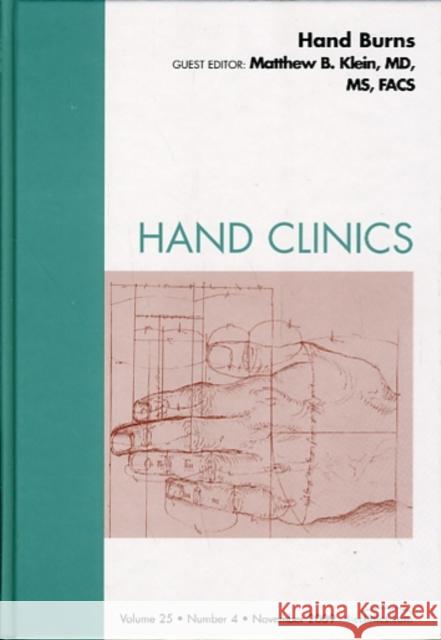Hand Burns, an Issue of Hand Clinics: Volume 25-4 » książka
Hand Burns, an Issue of Hand Clinics: Volume 25-4
ISBN-13: 9781437712247 / Angielski / Twarda / 2009 / 1 str.
The effects of hand burn injuries can be critical to quality of life and crucial to long-term functional outcomes following burn injury. Since hands are at the front line of human contact, a high percentage of thermal injury involves the upper extremity and, in particular, the hand. Hand burns can vary in severity from shallow burns requiring local wound care and aggressive range of motion therapy to complex wounds requiring repair of joints, tendons, and other soft tissue. Historically, given the poor survival associated with severe burn injury, many patients with hand burns simply did not survive the acute phase of treatment. If patients survived the systemic insult of burn injury, often the hands were neglected relative to more extensive areas on the trunk. However, with the widespread use of early excision and grafting, as well as great advancements in critical care, survival following thermal injury has become the rule rather than the exception. Therefore, emphasis in burn care has shifted towards optimizing the functional and psychosocial outcomes of those that survive their injury. Accordingly, optimal management of hand burns has received increasing attention given the critical importance of hand recovery to long-term outcome. In this volume of Hand Clinics, experts in burn care present an overview of pediatric and adult hand burn management - including shallow burns, as well as complex injuries from deep thermal burns or electrical injury. In addition, chapters on pathphysiology of scar, burn hand rehabilitation and assessing outcomes of hand injury emphasize critical concepts in achieving optimal hand function after injury.











